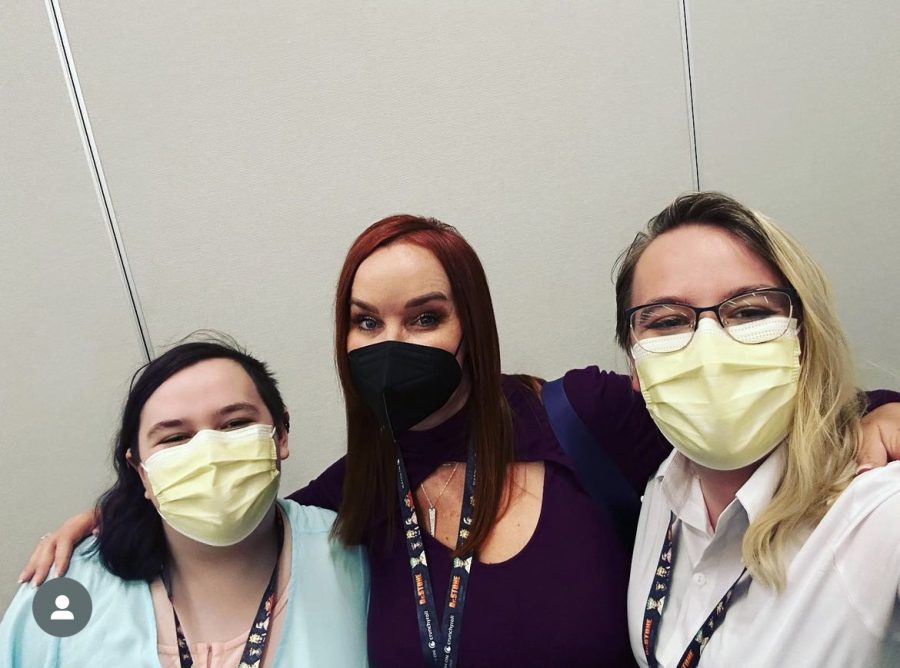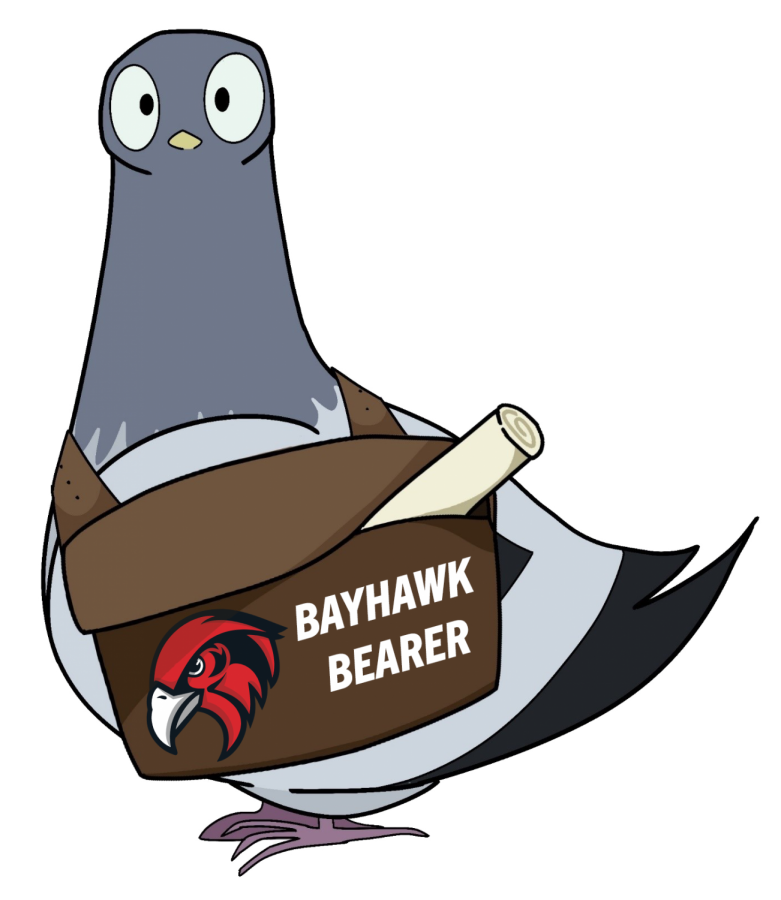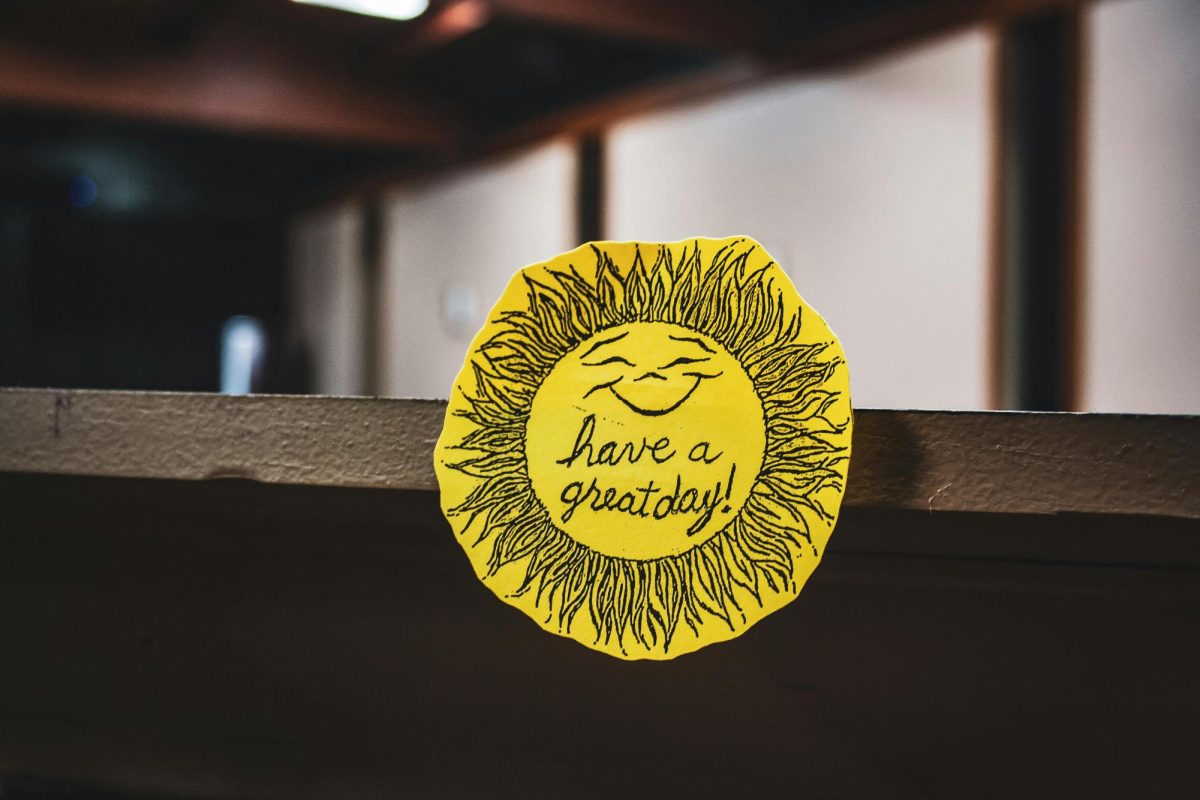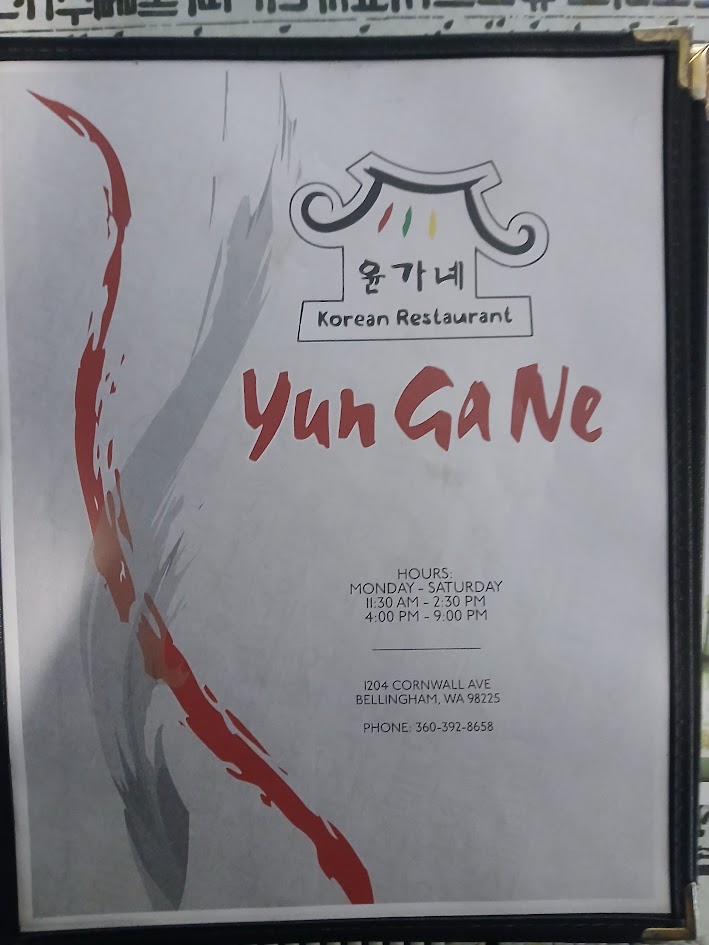Erica Schroeder Interviewed at Sakura-Con
April 26, 2023
Erica Schroder is an American voice actress, voice coach, and mother. Some of her most notable roles include Luffy from One Piece, Nurse Joy from Pokémon (1997), and Dark Magician Girl from Yu-Gi-Oh. This is an excerpt from an interview conducted at Sakura-Con.
How did you get into voice acting?
So I’m a lifer in terms of wanting to be an actor.
My mom says I came out of the womb dancing, so really from the time I remember consciousness I have wanted to be a performer and I had a couple of life goals and one of them was being the voice of a cartoon, and the other main one was being on Broadway. So I didn’t know when those things would happen or in what order, but my life’s purpose was to, you know, make those things happen.
So I ended up being on Broadway. When I was 25 and then when I was 28, 27 or 28, I got an audition for Ultra Mantia, which is a live-action, not a dub. And that was my first role. I just happened to be, I don’t like to say lucky ’cause there is a bit of luck, but there’s also a lot of preparation. You know, I went to school for it, I went to NYU and I studied my whole life to achieve my goals, but it just so happened that I was able to book the first thing I auditioned for. So there is a little bit of luck, but that’s how I got started. And then also that same company had seven or eight other properties and they enjoyed working with me.
I tell people [it’s] really hard to, some people call it breaking in. But once you get there, again, it’s hard to stay in and if there’s always a fluctuation, but if people know that you’re versatile, you’re a good person, you’re fun, and you’re not a diva, that’s a huge one. You can get more work eventually, you know, especially if you’re working directly with a company instead of with an agent. But, I kind of was doing both, so that’s how that happened.
I noticed that for some of your roles, you go by the pseudo name Bella Hudson. Why is that?
That was advice from my first theatrical agent, the one that I got my actor’s equity card with. [T]hey just thought I should keep them separate and then, After about three or four years, I was like, no.
And acting is acting. So I switched in the middle of One Piece. I think it really confused people. I think I switched in the middle of One Piece, I don’t remember actually, but at one point Susie [Goldish] was credited as being Luffy, which Susie thought was hilarious.
You guys might not even know [Susie Goldish]. Susie Goldish was our only female engineer at Four Kids and she rocked. We loved Susie and then she moved to LA and is, like, a very successful engineer in LA.
But there was a short period of time where she was credited on a bunch of different forms as being Luffy, and I think she said, no, that’s Erica Schroeder. That’s what happened. So she accidentally outed me. And for a while there, I went back and forth and I was like, I want to pretend that like I have a twin sister named Erica and I was gonna do like interviews, like split screen interviews where we like hate each other, but I just didn’t get it together in time.
What’s your process for getting into character?
Ooh, I like this. It’s really different for each thing, you know, but it’s such a physical thing. People don’t realize that, like when I become an old woman, instinctively, my whole body language changes my whole, my whole face changes, and then suddenly I’m a different person than I was before.
And that’s just what happens. And then if I’m playing Luffy, you know, or some other character, like a baby, you know, I have to like change my whole face, my eyes, everything. So it’s a very physical sport I’ll say. And so, It’s not a neck up sport. I think once people can really transform completely, and when I say that, I mean not with psychosis, like, I’m aware that I’m acting, but it is great to kind of disappear. So you’re always kind of watching a little bit over your own shoulder. But the goal is to just like transform and to just as that character, as fully as you, as you possibly can.
What are some challenges that you believe a lot of newcomers to voice acting can experience?
Oh, that’s such a good question. There’s the biggest one is this sheer volume of people that are being heard. Back in the day, it was only live, so you had to have an appointment to go in. I’m gonna go in at 1:10. I got somebody coming in at 1:15, 1 or 1:20. So how many people can you hear in a day, do the math, eight hours, six hours, however many, and then how many days are they gonna do that?
That’s a small number, a much smaller number. So the odds of breaking in are bigger because of home studio stuff in certain ways. Like if you lived in Wisconsin before, you had no chance, now you, you have a chance, right? So that’s the plus. The minuses, now there’s 5,000 people or 500 even, you know.
So the biggest challenge is just like, Being noticed amongst this massive quantity of people that are now being heard, that weren’t being heard before. That’s the biggest one.
How do you decide how a character sounds like?
So if you’re doing the dub, then you are listening to the source material, depending on what they want. Sometimes they’ll be like, we are not doing that.
And then, you’re looking at the physicality. You’re looking at the age, you’re looking at the personality traits, you’re looking at all those things. If you’re doing a pre-lay and that’s the first time this character has come to life, you’re looking at expression you’re looking at, you’re looking at eyebrows, you’re looking at eyes.
Are they half closed? Are they open? You’re looking at teeth. How many teeth do they have in their mouth? Are they kind of like bigger than their face? Are they tiny? What do their lips look like? Are they raising their eyebrows in this pilot that they’re giving you? Do they have slumpy, shoulders? Are they sitting up straight? You look at everything. And so when I coach, I tell people, look at the physicality, look at everything, but also highlight every adjective.
Get the old-fashioned highlighter out and highlight those adjectives. Sometimes those adjectives don’t fit together. Lazy, excitable, what? I mean, you’d be shocked at how many times a writer does that, and sometimes you just, you wanna shake them, but then sometimes they’re like, they’re doing that because they’re like, okay, they’re really lazy at home around mom and dad, but as soon as they get out with their friends, they’re excitable, but they don’t tell you that. So you gotta figure that out yourself.
Do you have a favorite character?
Yes. That’s a great question. And it’s always funny, I tell people it’s similar to asking, ‘who’s your favorite child?’, right? But I do love the question because it’s like I tell people it’s going to, the answer’s going to depend on the day, like what mood I’m in.
I do love, you guys don’t know these characters, Cheese and Cat in a show that I’m on currently. But this was a show, this is hysterical. It took me like six months to learn how to say the title: Boy Girl Dog Cat Mouse Cheese.
When I announced the role, this is hysterical: I actually told everyone in the universe, thousands of people, that I voiced Mouse and Cat, and I voiced Cheese and Cat. Mouse is actually voiced by a man. So I think like there’s thousands of people out there being like, wow, now that’s some good transformational voice acting.
But I love both those characters so much, and its big in Europe and big in Canada, but it hasn’t gotten picked up in the US yet. But I hope it does. These characters are so lovable, you guys will just freak out over them. Cheese is like super vain, super selfish, likes to sing really a lot, but isn’t fantastic at it.
And then Cat is like really derpy and likes to fall off the top of the fridge and laugh or roll out. Like they animate the Cat, like rolling out of the room instead of like walking. It’s hysterical. So two of my favorites.
Do you have any advice you’d give to people wanting to become voice actors?
I mean, it’s all encompassing. It’s… not like you can do something else at the same time.
I’m not saying that, but it’s like you have to want it more than anything in the world. It’s one of those careers. It’s like being a surgeon, to be really successful at it. Like, you have got to do everything you’ve got to. Go through the trenches I should say. And then also acting is acting.
Like I said before, there are some people who can voice act who can’t get on the stage. There are some people who can get on the stage who can’t voice act. There are some people who are on camera voice actors who cannot do voiceover, and there are some voiceover actors that cannot [act] on camera.
If you’re a really good actor, you should be able to figure out a way and adapt to do all three, and acting comes first. The voices are great if you know how to do voices, but it doesn’t mean that you can flesh out the entire character. So the most important thing I tell people is take a lot of classes and not just voice.
Yeah, if you can get on the stage, even if it makes you feel grossly uncomfortable, you will be so much of a better actor. Try getting on camera because like when I do certain roles like l like Emma Frost, I would do that more like on camera, you know what I mean?
But if I’m doing Luffy, I’m gonna be more like I’m on a Broadway stage. Energy required of different characters within animation, you can go from a really subtle performance to a really, you know, for lack of a better word, cartoony-over-the-top. The trend right now is authenticity and smaller, but I don’t like it when people say, you know, this is bad, this is good.
What is the most fulfilled moment in your career or lifetime?
One time I was an emergency cover for Aunt Reid who was like, starts the play at around like 45 or 55 or something, and ends the play around in her seventies. She dies on stage and I was swinging the show, which meant I was understanding eight different roles.
And at any time they could say, Erica, you’re going on [in] five minutes before, during the [show]. It happened. I was thrown on in the middle of the show, so we had two of the older character actresses missing on the same night. And they were like, Erica, you’re going on for Aunt Reid. And I was like, yes!
I got to go on with Marla Shuffle playing Jane. Who was like 35 playing 19, and I was 25 playing 75. And the general manager let my husband in to watch because he’s so honest with me.
And you know, he watched the performance and said he bought every minute of it and I felt like I really did the thing that I wanted to do most, which was to transform believably. And so that was a great day for me.
Is there a difference between voice acting for video games and for shows?
A lot of people will just say right away, yes. That’s not necessarily true because there are so many different styles of games. I’ve done World of Warcraft, but then I’ve also been Luffy in like, you know, different games. I’ve been Blaze the Cat in certain games that are, like, kind of fun.
And then I’ve been in, you know, Diablo Immortal where it’s dark and like I would say the trend again, we’re talking about trends, is authentic. I’m gonna be more [able] to play someone who sounds like me or maybe someone close to me, but not exactly something like that. And, but they do the contracts work in such a way where you can play- the union contracts- where you can play like up to three characters under the same contract and there’s like tiers or whatever.
So if you’re versatile, authenticity isn’t always necessarily gonna happen across the boards. You might play one that’s very close to you, and then like a demon warrior, you know, that’s like, you know, like, in the same thing. So, but generally they tend to be a little bit more like close to home and right now.
Is there a certain type of character you love to voice?
I’m trying to think of what I haven’t done. I’m like, cause I’ve even played in objects sometimes, like in [Yu-Gi-Oh] and then Cheese. But like I, I would love to do, you know, another pre-lay where I get to improv more and just, I don’t even care what the character is.
I just want even more of an influence on the character. So with pre-lay, I don’t know if you guys know this, but we still have to say the lines that are on the page, but if I wanna say something different, one take, I can, they don’t have to choose it, but sometimes the director and I’ll be like, oh, Cheese would never say that. So I would definitely love to do a brilliantly funny pre relay with just some sort of maybe over the top kind of character.
Typically, when you’re working, how many hours a week do you work?
It varies. I mean, I am an audition only. [I am also a] recommendation only voice coach, which means you have to come recommended by someone else that I know. Just in terms inviting someone into your life, I have to know that you’re okay and you’re kind.
I do that in the morning. This is my routine: I coach in the morning. I act in the afternoon, into the evening if I need to. If I’ve got a couple shows on one day I audition, I spend time with my family at night. And then I audition usually after my kids are asleep.
Sometimes, like now that they’re teenagers, they’re talking to all their friends. They don’t even wanna see me. They’re like, you know, doing homework and stuff. And I’ll be like, ‘hi, how you doing?’ They’ll be like, ‘mama, I’m fine’. So I’ll be like, all right, I’m gonna go do some of my auditions now that they’re occupied.
It’s intense because auditioning is a full-time job. Acting is a full-time job. Mothering is a full-time job, and coaching is a full-time job. So to fit them all, in a day, is intense. And now [going to] conventions is also a full-time job. So you have to be really organized and make sure that you’re getting in your stuff.
You gotta give time for your exercise. Cause then you’re like, oh my God, I forgot. You know, I have to move. I’m standing still. I tell people, if you can block your time, like I have a social media block twice a week, this hour, this hour.
If I don’t do that, I won’t spend the proper amount of time planning things that, you know, and I miss a ton of announcements. That’s the one thing I am terrible at. I miss probably nine out of every 10 roles. That’s like the hardest part is tracking down when it’s gonna happen cuz nobody tells you.
You’re like, ‘Really? I did all this and you’re not even gonna tell me’. Like, I have to stalk myself. I have no time to stalk myself. That’s [the] worst. Stalking myself. Some people are really good at it.






